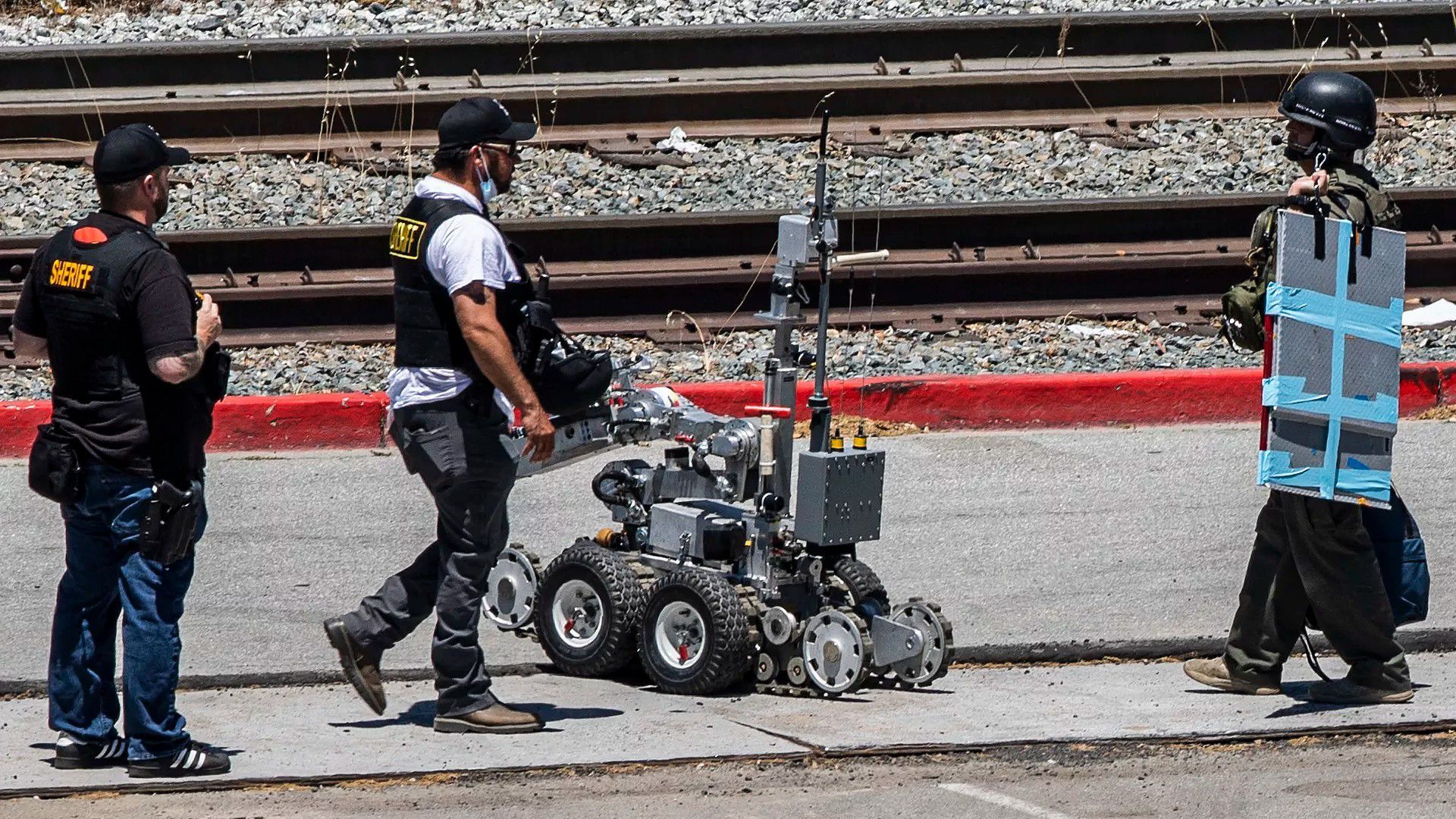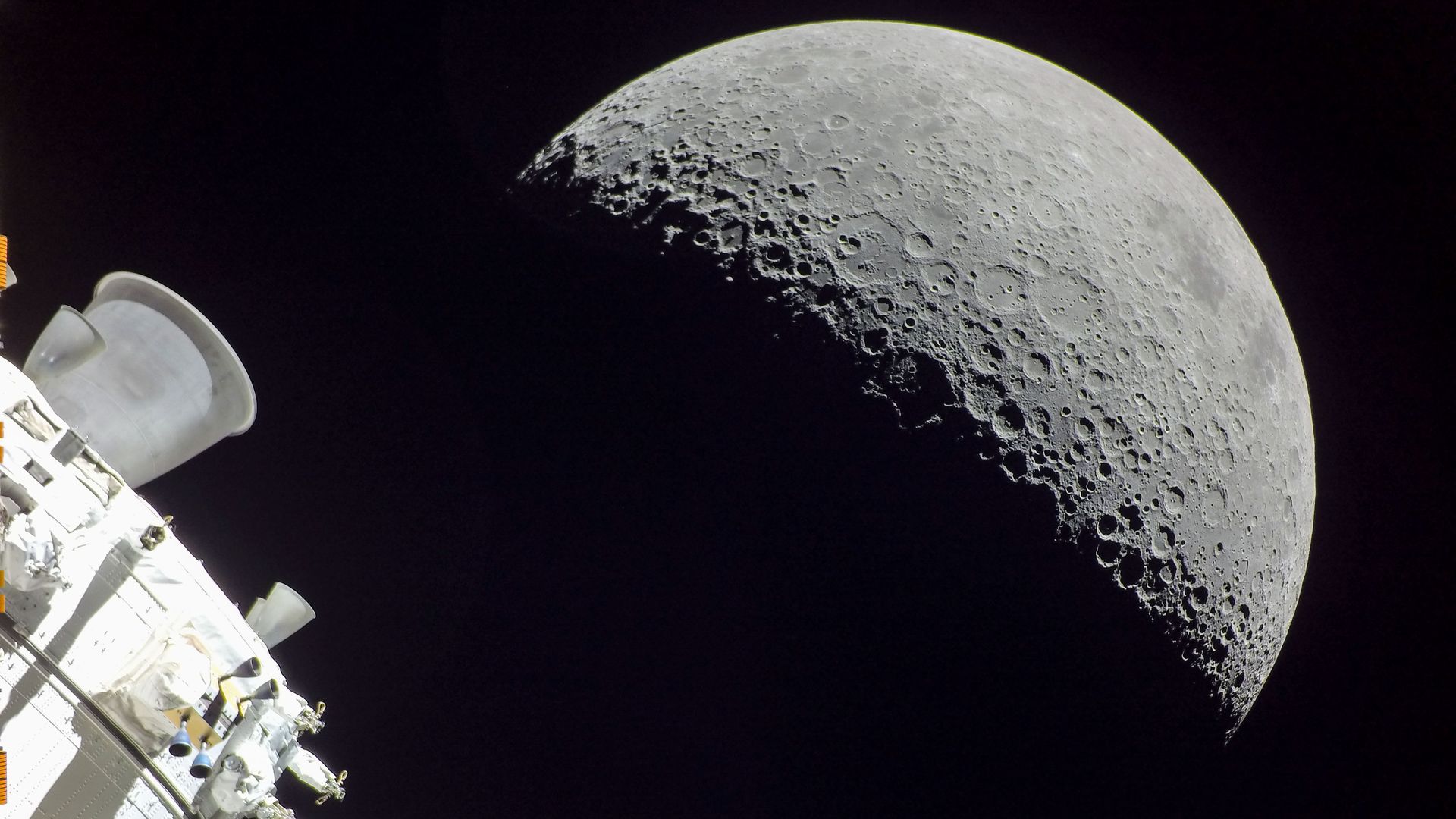| | | | | | | Presented By Capital One | | | | Axios What's Next | | By Alex Fitzpatrick, Joann Muller and Jennifer A. Kingson · Dec 08, 2022 | | These are early days, but the idea of free municipal bus service is starting to spread among U.S. cities, as Alex describes today. Today's newsletter is 973 words ... 3½ minutes. | | | | | | 1 big thing: No bus fare? No problem — the ride's free |  | | | Illustration: Eniola Odetunde/Axios | | | | A handful of U.S. public transit systems have recently made or are poised to make bus travel free, in hopes of better serving riders and addressing critical equity issues, Alex Fitzpatrick reports. - Such programs have been hugely popular, leaving transit officials scrambling to find ways to keep funding them.
Why it matters: Buses tend to serve lower-income and minority riders, meaning free service keeps more money in the pockets of people with the greatest need. - Free service also eliminates fare evasion and its related enforcement, which is costly in and of itself — and also tends to mostly affect the people least able to pay fines.
- Plus, a healthy, well-used public transit system can be the beating heart of a city's economy, even if it's not itself a big moneymaker.
Yet non-riders typically don't want to pay more in taxes or tolls to subsidize public transit. Driving the news: Washington, D.C., is set to become the next major U.S. city offering free bus service, following a unanimous D.C. Council vote on Tuesday. - Metrobus rides within the District will be free starting next summer, the Washington Post reports — as long as Mayor Muriel Bowser approves the measure. That's not guaranteed; she's been skeptical of the potential costs.
- The measure's supporters celebrated the vote nonetheless. "This is something that is one of those rare win-win wins," D.C. Council member Charles Allen told the Post. "Deep, immediate, meaningful impact for working families all across our city."
If Washington goes fare-free, it would follow neighbor Alexandria, Virginia, whose bus network DASH introduced free service last year, and Kansas City, Missouri, which began offering "Zero Fare" bus travel in 2020. Case study: Like many other public transit networks, DASH stopped charging for rides during the COVID-19 pandemic, when many essential workers were relying on bus, train and subway systems. - Unlike most other systems, DASH decided to keep its buses free.
- "Transit fares, for us, are more about equity than about driving ridership," said Josh Baker, CEO and general manager of Alexandria Transit Company, which operates DASH.
- In September, DASH ridership hit its highest level in more than seven years — about 15,000 average weekday boardings.
Yes, but: Some fare-free cities are leaning on state and federal funding to make up some of the inevitable shortfall. - Those programs only offer so much time and money, putting transit officials on the clock to figure out long-term solutions.
The bottom line: Some funding options, like new taxes or tolls, might be a tough sell with residents who don't use public transit. But proponents argue that more accessible buses and subways — and the related economic benefits — are well worth the costs. Read the full story. |     | | | | | | 2. San Francisco bans deadly robots — for now |  | | | The Santa Clara County Sheriff's Office uses a robot similar to one the San Francisco Police Department owns. Photo: Santiago Mejia/San Francisco Chronicle via Getty Images | | | | San Francisco officials voted Tuesday to temporarily bar the police from using robots as a deadly force option, Axios' Sareen Habeshian and Megan Rose Dickey report. - The decision marks a reversal from last week, when the Board of Supervisors voted 8-3 to approve the controversial policy.
Details: The measure would have allowed the police to use remote-controlled robots for deadly force "when risk of loss of life to members of the public or officers is imminent and outweighs any other force option available," per the draft policy. Yes, but: Officials will reevaluate the idea in future hearings. What they're saying: "We just stopped the use of killer robots in SF," Supervisor Hillary Ronen said in a tweet. "Complete reversal from last week. Common sense prevailed." Share this story. |     | | | | | | 3. Sustainable aviation fuels are waiting for takeoff |  Data: Rhodium Group; Chart: Axios Visuals "Sustainable" aviation fuels (SAFs) made from agricultural or forest waste, algae or even used cooking oil could dramatically cut emissions from air travel while also creating thousands of jobs, Axios' Andrew Freedman reports. Why it matters: Aviation is one of the hardest sectors to decarbonize, since planes typically remain in service for decades and cannot be significantly reengineered to run on different fuels. - But SAFs can be blended with — and eventually replace — traditional aviation fuels.
Zoom in: New research from the Rhodium Group finds economic, technological and policy challenges to meeting the Biden administration's aggressive targets for scaling up SAF use. - Currently, producers are making just 4.5 million gallons of SAFs per year, the report states. The administration aims to bring that to 35 billion gallons by 2050.
The big picture: While SAF demand from airlines is growing, it is not yet prompting a sufficiently rapid expansion of the industry, the report states. What they're saying: "It will take more commitments from airlines, and at greater magnitudes, to really help spur SAF deployment," Eric O'Rear, a senior analyst at Rhodium, told Axios. - SAFs are currently too expensive for airlines to substitute for traditional fuels, he said.
Read the rest. |     | | | | | | A message from Capital One | | Life without internet | | |  | | | | Access to the internet, hardware and sufficient digital infrastructure serves as the "on ramp" for remote work, education and telehealth. Okay, but: Around 19 million Americans lack access to fixed broadband service at threshold speeds, according to the FTC. Here's how Capital One is helping. | | | | | | 4. 📸 Lunar flyby |  | | | Photo courtesy of NASA | | | | The Moon as seen from NASA's Orion spacecraft on day 20 of the agency's Artemis I mission — an uncrewed test of its new lunar capsule and rocket. - At its closest approach, Orion was only about 80 miles above the Moon's surface.
- It's now headed back to Earth for an all-important reentry test.
What's next: The Artemis II mission, set for 2024, will see astronauts do a similar flyby. - A landing won't happen until Artemis III, set for 2025. But key equipment — like a new lunar landing vehicle — remains under development.
|     | | | | | | 5. More expensive cars = more expensive insurance |  | | | Illustration: Aïda Amer/Axios | | | | Drivers are facing car insurance premium hikes in 2023 as more expensive vehicles and higher rates of crashes translate into more expensive coverage, Axios' Nathan Bomey reports. Why it matters: Drivers can't avoid insurance costs, so increases tend to disproportionately harm low-income people and those on fixed-incomes. Driving the news: The average driver is expected to pay $1,895 per vehicle for insurance in 2023, according to a study by Insurify, which analyzed 69 million rates in 50 states. - That's up 7% from 2022 and 29.5% from 2020, and marks the first time average insurance premiums will top $150 monthly.
Read the rest. |     | | | | | | A message from Capital One | | 19 million Americans don't have access to reliable internet | | |  | | | | The unequal access to affordable and reliable internet is creating a digital divide. Why it's important: Access to the internet, hardware and sufficient digital infrastructure serve as the "on ramp" for remote work, education and telehealth. Learn how Capital One is closing this divide. | | | | Big thanks to What's Next copy editor Amy Stern. Was this email forwarded to you? Get your daily dose of What's Next by signing up here for our free newsletter. |  | | Are you a fan of this email format? Your essential communications — to staff, clients and other stakeholders — can have the same style. Axios HQ, a powerful platform, will help you do it. | | | | | | Axios thanks our partners for supporting our newsletters. If you're interested in advertising, learn more here.
Sponsorship has no influence on editorial content. Axios, 3100 Clarendon Blvd, Arlington VA 22201 | | | You received this email because you signed up for newsletters from Axios.
Change your preferences or unsubscribe here. | | | Was this email forwarded to you?
Sign up now to get Axios in your inbox. | | | | Follow Axios on social media:    | | | | | |
Post a Comment
0Comments